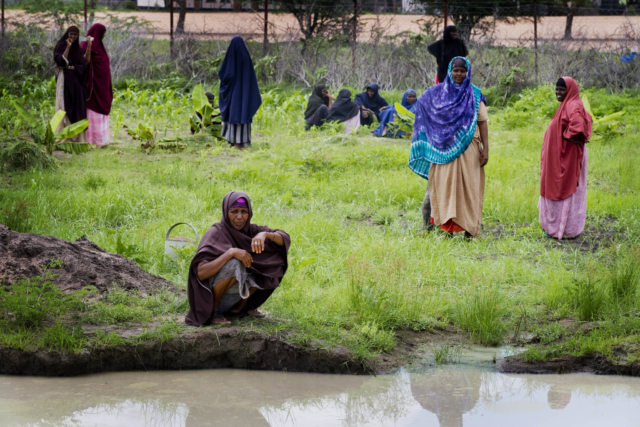The Hopes of The First Food Systems Summit
 The first global Food Systems Summit will take place on September 23, 2021, preceded by a three-day pre-summit in Rome from July 26 to July 28, 2021. The summit is part of the United Nations’ Decade of Action, in which the U.N. aims to achieve its Sustainable Development Goals (SDGs) by 2030.
The first global Food Systems Summit will take place on September 23, 2021, preceded by a three-day pre-summit in Rome from July 26 to July 28, 2021. The summit is part of the United Nations’ Decade of Action, in which the U.N. aims to achieve its Sustainable Development Goals (SDGs) by 2030.
Goals of the Food Systems Summit
The Food Systems Summit will examine how food insecurity, climate and human conflicts intersect. According to the United Nations website, the summit has four main goals including:
- Establishing a clearer agenda to achieve the U.N.’s SDGs. This means creating action steps for all levels, from national governments to local representatives and from global companies to individual citizens.
- Opening up public discussion about food insecurity and creating more awareness.
- Formulating guiding principles for governments as they create their own plans to support the U.N.’s SDGs.
- Establishing a system of accountability, follow-up and review to ensure tangible progress.
Activists’ Immediate Demands
The summit has long-term strategic potential, but some activists have more immediate concerns as well. The summit comes at a time when food prices, job insecurity and overall global hunger are all rising. On April 20, 2021, more than 250 aid groups and organizations wrote an open letter to the United Nations demanding $5.5 billion in emergency food assistance funding.
Activists’ Criticisms of the Summit
Many activists have major concerns about the Food Systems Summit, particularly regarding who is involved in the program and the direction that the program aims to take for food production. Although small-scale food suppliers such as fishermen, farmers and Indigenous people provide the vast majority of the world’s food, they do not have a seat at the table at the summit. Many feel that the preparation process has not been transparent enough to allow small-scale producers to participate.
Additionally, other activists have concerns about how the summit will approach food insecurity. Many believe it focuses too much on technological solutions to food insecurity and that supporting other systems is necessary to return self-autonomy to people in poverty. Though new technology can play an important role, alternative solutions must undergo consideration as well. For example, agroecology draws upon historical, cultural and scientific knowledge of specific regions, ensuring more sustainable farming and preserving people’s cultural practices. Activists also worry that some high-tech solutions will tighten corporate control over developing countries’ food systems.
Looking to the Future
Though the Food Systems Summit has received criticism, it is still an important step as it will bring countries together to form a plan to address the pressing crisis of food insecurity. According to the United Nations, “Scientists agree that transforming our food systems is among the most powerful ways to change course and make progress toward all 17 Sustainable Development Goals.” With collaboration among governments and citizens, the world can better tackle problems related to food consumption and production.
– Jessica Li
Photo: Flickr
